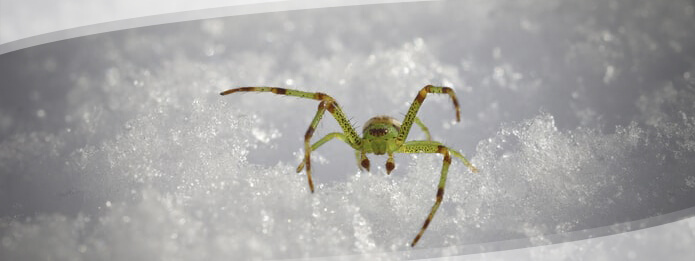 As the days become shorter and the temperatures plummet, we begin to look for ways to stay warm during winter. We might buy a new coat, layer on the old sweatshirts or crank up the furnace, but we’re not the only ones preparing for the coldest season of them all. Any residential pest control expert in Niagara will tell you that spiders too will be preparing to survive winter.
We’re going to look at whether or not spiders hibernate through winter. We’ll look at what they do to stay warm enough to survive winter, and the steps you’ll need to take if you find spiders wrapped up in your home.
As the days become shorter and the temperatures plummet, we begin to look for ways to stay warm during winter. We might buy a new coat, layer on the old sweatshirts or crank up the furnace, but we’re not the only ones preparing for the coldest season of them all. Any residential pest control expert in Niagara will tell you that spiders too will be preparing to survive winter.
We’re going to look at whether or not spiders hibernate through winter. We’ll look at what they do to stay warm enough to survive winter, and the steps you’ll need to take if you find spiders wrapped up in your home.
 As the days become shorter and the temperatures plummet, we begin to look for ways to stay warm during winter. We might buy a new coat, layer on the old sweatshirts or crank up the furnace, but we’re not the only ones preparing for the coldest season of them all. Any residential pest control expert in Niagara will tell you that spiders too will be preparing to survive winter.
We’re going to look at whether or not spiders hibernate through winter. We’ll look at what they do to stay warm enough to survive winter, and the steps you’ll need to take if you find spiders wrapped up in your home.
As the days become shorter and the temperatures plummet, we begin to look for ways to stay warm during winter. We might buy a new coat, layer on the old sweatshirts or crank up the furnace, but we’re not the only ones preparing for the coldest season of them all. Any residential pest control expert in Niagara will tell you that spiders too will be preparing to survive winter.
We’re going to look at whether or not spiders hibernate through winter. We’ll look at what they do to stay warm enough to survive winter, and the steps you’ll need to take if you find spiders wrapped up in your home.

